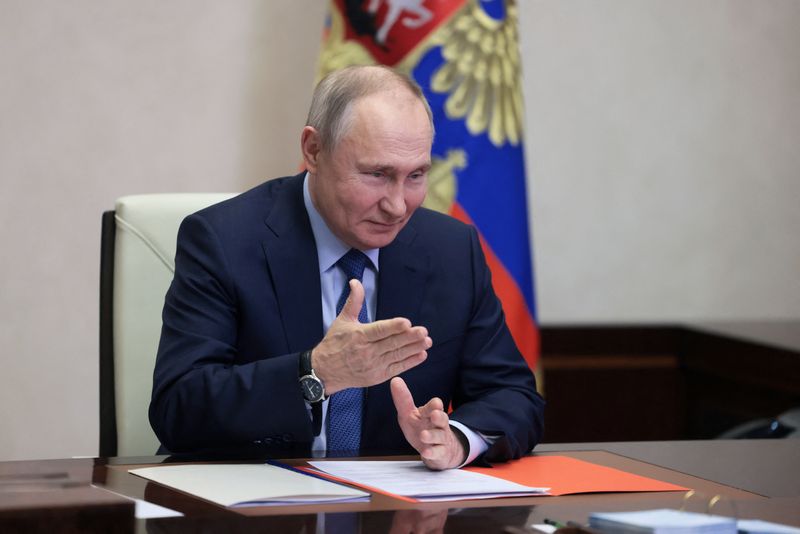Investing.com’s stocks of the week
BELGRADE (Reuters) - Russia highly appreciates Serbia's "balanced foreign policy" and backs its efforts to protect its territorial integrity in its stand-off with Kosovo, President Vladimir Putin said in a letter to his Serbian counterpart.
Russia is Serbia's main ally in its opposition to the 15-year-old independence of its ex-province Kosovo, and Belgrade has refused to apply European Union sanctions imposed on Moscow over its invasion of Ukraine despite its EU membership ambition.
Belgrade has long performed a delicate balancing act between its EU aspirations and partnership with NATO on the one hand and its centuries-old ethnic and religious kinship with Russia.
But as EU-Russian tensions escalate, Western calls for Belgrade to join sanctions against Moscow and align its foreign policy with Brussels are getting louder.
"Serbia is an important and reliable partner of Russia," Putin told President Aleksandar Vucic in the letter, which congratulated Serbia on the occasion of its statehood day on Wednesday and was released to media by the Serbian presidency.
"We highly appreciate the balanced foreign policy course Belgrade is implementing in a complicated international environment. We support your efforts to protect your territorial integrity and resolve the Kosovo issue," Putin said.
"I am convinced that a further development of the Russian-Serbian strategic partnership reflects the best interest of our brotherly nations."
Serbia continues to support the refusal of 50,000 ethnic Serbs in north Kosovo to recognise the country's independence, whose 15th anniversary falls on Friday, 25 years after a Kosovo Albanian uprising against repressive Serbian rule.
Prime Minister Ana Brnabic said Belgrade's refusal to apply sanctions on its ally Russia remains the main obstacle to a speedier EU accession bid, describing the demand as the "condition above all conditions" set by the bloc.
Although it has repeatedly condemned Russia's invasion of Ukraine in the United Nations and other international forums, Serbia has been criticised by Brussels for not formally introducing sanctions against Moscow.
